
|
|
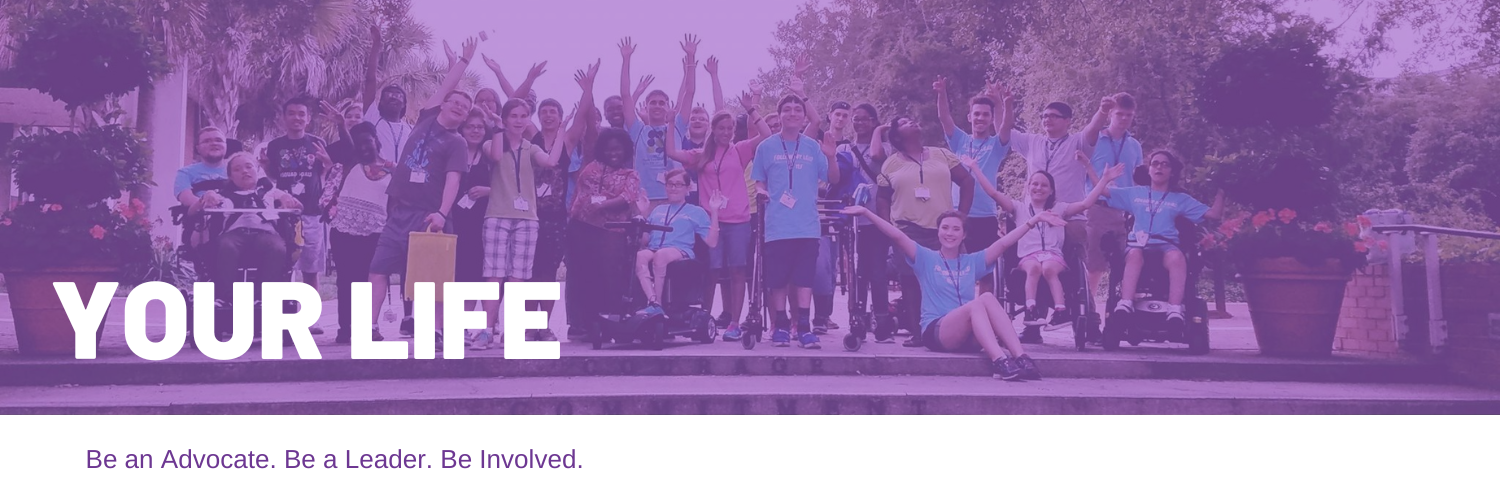 |
|
|
|
|
Paralympics TikTok Account Mired In
Controversy
By
Grace Trumpower | |
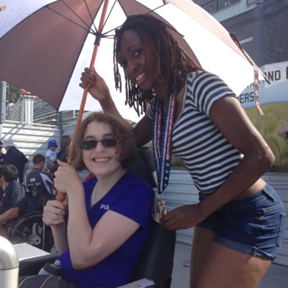 |
|
**Author’s
Note: This editorial is about the Paralympics, not the Special Olympics. To
learn the difference between the two, click on the following link: What
Are the Paralympics vs. Special Olympics?**
In
the summer of 2015, my dad took me to the qualification tournament for the Track
and Field portion of the 2016 Paralympics in Rio de Janeiro, Brazil. I was
amazed. As a person with a physical disability, I always assumed that sports
were something that was simply out of my reach, but this event changed that
perception forever. I saw wheelchair users racing around the track in
neck-and-neck races. A woman with her right leg amputated told me about how
Paralympic athletes with running blades could actually run faster than
nondisabled athletes! The athletes’ disability pride, interdependence, and
good-natured competitiveness stayed with me and now I watch the Paralympics
every time it comes on.
The
Paralympics also shows people who are not familiar with disability what amazing
things disabled people can accomplish. For some people, it is their only
exposure to the disability community.
So
imagine my disappointment when I tell you that the official Paralympic TikTok is
openly mocking the very athletes it claims to represent. Let’s explore the
differences in how Olympians and Paralympians are portrayed.
On
the official Olympics TikTok account, a video shows several photos set to
inspiring guitar music. An Australian swimmer enters the water in one photo and
swims in the next. There is a photo of her hugging her parents and holding up
her gold medal. She is portrayed as victorious, passionate, and strong.
On
the official Paralympics TikTok account, a video shows two men playing table
tennis. The first man has a crutch on his left arm, and his opponent has
spasticity on one side of his body. The second man dives to block a shot, and a
voice sings out “I’m headed straight for the floor” as he completes his dive and
crashes to the ground. It is a genuinely spectacular dive that shows the
player’s athletic prowess while being largely ignored.
And
despite the account being run by a former Paralympian, the disabled athletes
weren’t even being respected as the tellers of their own stories. Many people
wrote comments that implied that they were laughing at the Paralympians, such as
“I’m going straight to hell” followed by several laughing emojis. There is a
huge difference between people with disabilities joking around amongst
themselves and inviting people to laugh with them, and what we see here-
nondisabled people treating people with disabilities as objects meant to teach a
moral lesson, or even worse, just the butt of a joke.
The
Olympic account showcases interviews with the athletes, historic moments from
past games, and the athletes’ major achievements, with one or two jokes thrown
in. Why are Paralympic athletes not afforded the same respect? The athletes
playing in both games work their entire lives to become skilled enough to
compete on the world stage. English amputee soccer player, Sean Jackson, argues
that TikTok has “[turned] them into memes”, according to CNN.
The
Paralympic account has wasted the opportunity to teach people unfamiliar with
disability about unique aspects of disability culture, such as games that are
specific to the disability community, like modified boccia, sitting volleyball,
and goalball. They could have started a conversation on how the disability
justice principle of interdependence encourages teamwork for all athletes,
regardless of abilities or type of sport. It could have educated the average
person about how to accommodate disabled people without pity, on the field and
in day-to-day life. Instead, jokes and poorly fitting audio disrespect the
athletes and their amazing feats. A good way to counteract this casual ableism
is to tune into the Paralympics wherever you watch sports. Show your support!
To
see the videos I reference in this editorial and to read more about the
controversy, visit the links below.
| | | | |
|
|
|
|
|
|
|
|
|
|
|
|
Monthly Equip Hangouts
The
Equip Hangouts occur on the first and third Thursdays of every month from 6-7
PM. The first Thursdays are held through a virtual meeting, and the third
Thursdays are hosted in person at the Greenville and Columbia Able SC offices.
Equip Leaders and Mentors help empower youth with disabilities ages 13-28 to
take charge of their lives, find their unique voice to self-advocate, and engage
with their community of peers more fully.
If
you have any questions or need help registering, email equip@able-sc.org or call
us at 864.235.1421. Registration is required. To register, follow the link
below.
Meeting
dates:
| |
|
| | | |
|
|
Able SC Offers Pre-Employment Transition Services
| |
|
Able
SC has partnered with South Carolina Vocational Rehabilitation and the South
Carolina Commission for the Blind to offer Pre-Employment Transition Services to
students in the Midlands and the Upstate. These lessons help students with
disabilities ages 13-21 transition between school and the working environment.
There are eight curriculum options available to students including career
readiness, self-advocacy, and life skills.
Lessons
are taught over six weeks for 45 minutes each, and students can be taught
virtually or in the classroom. Lessons are taught by one of Able SC’s trained
Youth Transition Specialists. Teachers are required to register each student and
can request to receive reports detailing the attendance and measurable progress
of each student, with individual improvement plans made for students who do not
meet specific standards. Lessons are updated yearly based on teachers’
suggestions and student data. Students are also encouraged to take advantage of
Able SC’s services. | |
|
| | |
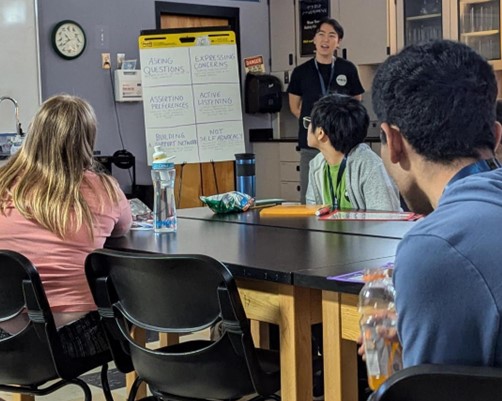 |
|
For
more information on pre-ETS services and to register your students, please visit
the website linked below. | |
|
|
|
| | | |
|
|
Virtual Reality and Programming Lessons with SC CATER
Starting 08/30/24 | |
|
Learn
to program video games! Starting classes to be certified in Unity Programming.
Attend multiple classes to complete your certification starting on August 30th.
Registration is required to attend. To register, click on the button
below. | |
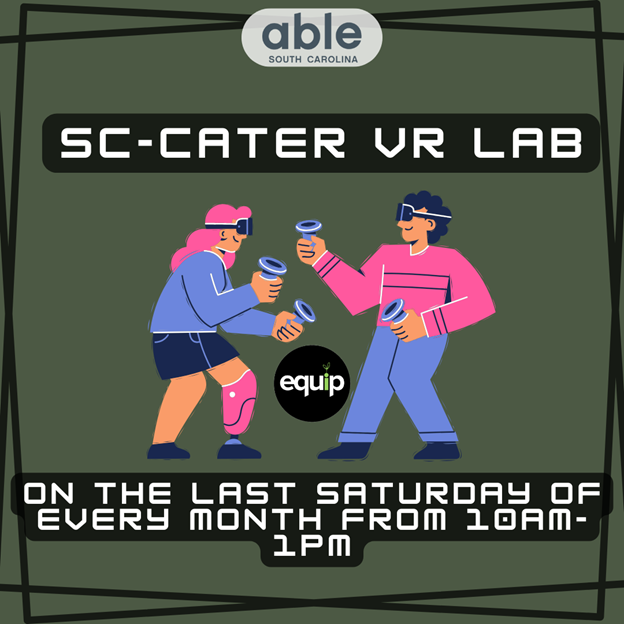 |
|
|
|
|
Disability & Health Equity Movie
Screening | |
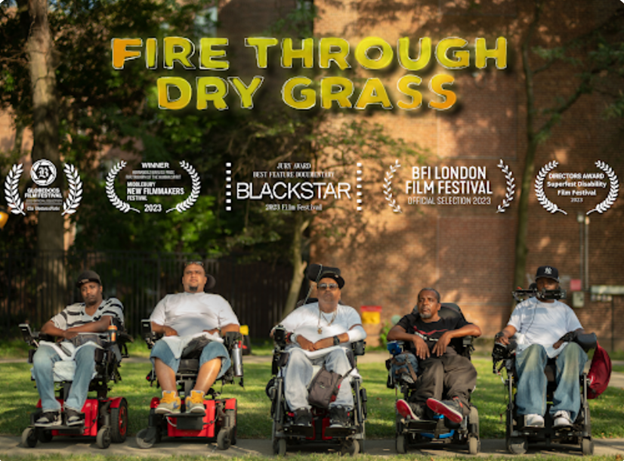 |
|
Join
us for a special screening of Fire Through Dry Grass, followed by a talkback
featuring Ebony Deloach, Cason Stark, and Marly Saade, all representatives from
Able SC and disabled advocates, as well as one of the filmmakers. The talkback
will be moderated by Justice Shorter of SeededGround.
This
event is for those interested in topics of housing, violence prevention, arts,
health, and issues impacting our youth, seniors, and marginalized communities.
Fire
Through Dry Grass uncovers in real-time the devastation experienced by residents
of a New York City nursing home during the coronavirus pandemic. Co-Directors
Alexis Neophytides and Andres “Jay” Molina take viewers inside Coler, on
Roosevelt Island, where Jay lives with his fellow Reality Poets, a group of
mostly gun violence survivors.
Event
Details:
- Monday, September 9 at 2:30 pm
- Nickelodeon Theater: 1607 Main Street, Columbia, SC 29201
- This event is free to attend, however, we do ask that you reserve your
ticket. There is an option on the reservation to request accommodations.
To
reserve your ticket and learn more about the film, please click on the button
below. | |
|
|
|
|
|
| | | |
|
|
|
|
 |
|
The
Harriet Hancock Center is a resource and community center for LGBTQ people in
Columbia, SC. Though they serve the entire community, they have partnered with
Able SC to make sure their events are accessible to everyone with a disability
who wants to access them. Similar to Able SC’s Equip Hangouts, the Harriet
Handcock center offers youth ages 11-17 support and social group meetings known
as Youth OUTLOUD. Currently, Youth OUTLOUD meetings are held twice a month at
the Harriet Hancock Center, but they are hoping to partner with Able SC to
create a fully accessible virtual space. That idea is still in its infancy, but
be on the lookout for updates! | |
|
|
|
| | | |
|
|
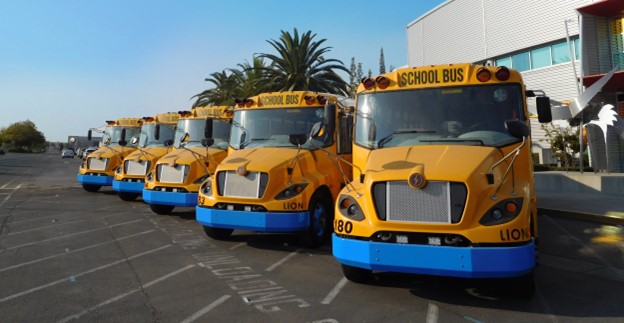 |
Electric School Buses for Students with
Disabilities
There
are more than 7 million students in grades K-12 who have a disability. For many
of these students, the bus is the only way they can get to school, and although
the Individuals with Disabilities Education Act requires that students with
disabilities receive equal access to all services offered to students without
disabilities, including transportation, many buses are not equipped with the
accessibility features that these students need.
Students
with disabilities report ramps and lifts breaking down often or being very slow.
Students in wheelchairs say that the buses often lack a designated wheelchair
area, and they often don’t have tie-downs that prevent a wheelchair from moving
during transit. Students who use canes or crutches often have to choose between
walking up the stairs or standing on a moving lift without seating support- both
of which are uncomfortable and unsafe. Students with autism or other sensory
sensitivities often cannot cope with the noises, vibrations, and smells of a
large diesel engine.
Transportation
access issues are more common in low-income communities and communities of
color, and as a result, many marginalized students are spending three hours or
more on the bus within a school day, and the constant breathing in of fumes can
increase a person’s chances of developing cancer, asthma, and other respiratory
diseases.
Electric
school buses are being built from the ground up which means that we have a
unique opportunity to create accessible transportation. Experts suggest
consulting youth with disabilities directly, and many disabled students shared
suggestions that had not been considered before, such as a larger emergency
hatch for people with obesity and seat belts made of sensory-friendly fabric.
Electric school buses also get rid of the noises, vibrations, and smells of a
diesel engine and the exposure to fumes by virtue of being electric.
South
Carolina is receiving $66 million dollars from the government that is allocated
for the building of electric school buses. There are a few of them already on
the road and 168 of them will be created within a few years, the third largest
number of any state, behind California and New York. You can add riding an
electric school bus to the transportation section of your IEP either now or in
the near future in some school districts.
To
learn more about the accessibility of electric school buses and to find out if
electric school buses are available or are going to be available in your South
Carolina school district, click the buttons below.
| |
|
|
|
|
|
|
|
| | | |
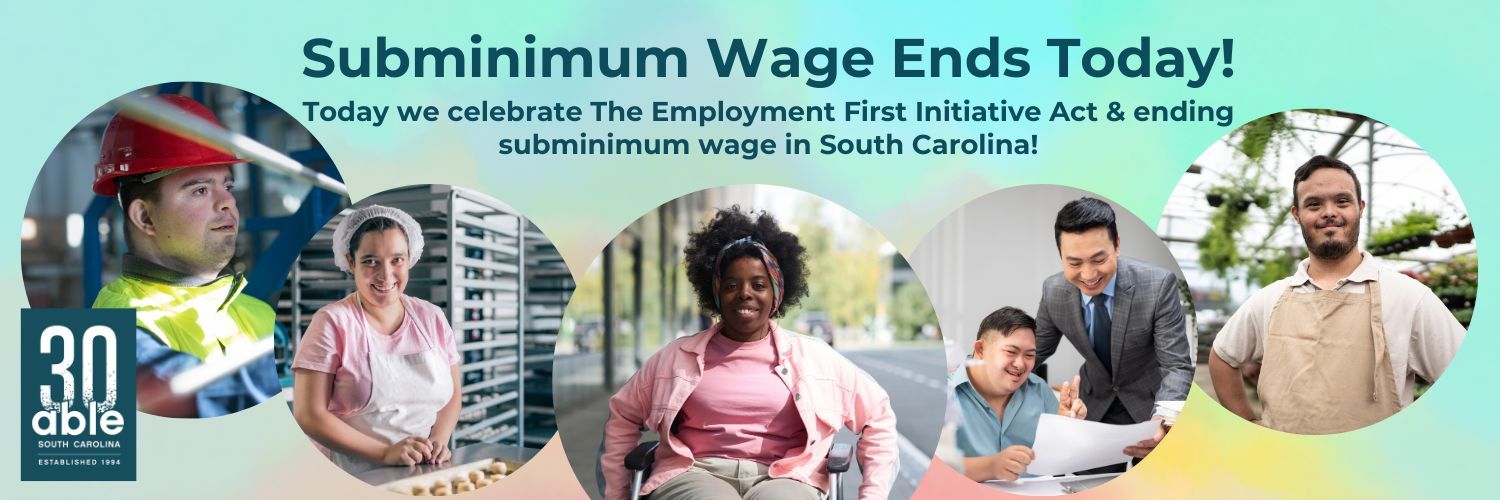 |
Subminimum Wage Ends in South Carolina
| |
|
In
South Carolina, the minimum wage is $7.25 per hour, but it used to be legal to
pay people with disabilities as little as $0.05 per hour. People with
disabilities were segregated from their peers without disabilities in “work
activity centers”, or sheltered workshops, where they were made to work for
pennies. Able South Carolina worked to pass S.533, the bill to end subminimum
wage, and the Employment First Initiative Act, a law that promotes inclusive
employment. A task force was created in order to ensure that people subjected to
subminimum wage were able to transition to competitive employment alongside
people without disabilities, where they make a full wage.
Subminimum
wage and sheltered workshops are now illegal as of August 1, 2024. Governor
Henry McMaster signed S.533 and the Employment First Initiative Act into law on
May 23, 2022, but it took two years for subminimum wage to be phased out. Our
President & CEO, Kimberly Tissot said of the news, “Today marks a new future
for people with disabilities in South Carolina!”
To
learn more about the end of subminimum wage in South Carolina, click the link
below. | |
|
|
|
|
|
|
Partner and National
Events | |
|
|
|
Able
South Carolina and its partners recently held the annual South Carolina Youth
Leadership Forum (YLF). YLF is a four-day, three-night experience focused on
teaching youth with disabilities leadership skills and self advocacy. This
year’s YLF had the most applicants in SC YLF history and a limited number of
spots, meaning that the delegates had to participate in and pass an interview in
order to be accepted.
At
YLF, participants learned leadership skills, such as how to present an elevator
pitch and how to exhibit professionalism. They also learned about things like
healthy relationships and the importance of voting. Many speakers came to share
their insights and Able’s own Michael Hanna and Troy Hall led a session on how
to set personal goals. There was also a lot of learning outside of the classroom
with staff from Able SC, Walton Options, and AccessAbility sharing advice on how
to receive accommodations in school and how to fill out college
applications. | |
|
Participants
learned a lot but they also got to relax and have fun! Participants got to play
in video game tournaments at night, and they got to socialize with each other
and make new friends during meal times. They played sports in adaptive PE and
took an adaptive dance class. When asked to describe YLF in one word, the youth
used words like “awesome”, “fun”, “educational”, and “amazing”. One youth
described YLF as “a place of camaraderie and union”. YLF was so much fun and we
can’t wait for next year’s event!
| | | |
| |
|
|
|
|
Ready Vets
Our
sponsor this month is Ready Vets.
Ready
Vets serves Greer, Greenville, Taylors, and Spartanburg in SC. They are the only
locally-owned veterinary clinic that offers same-day appointments. In addition
to veterinary care, Ready Pets offers in-house diagnostics and ultrasounds. They
know that your pet shows you unconditional love and they want to return the
favor by showing great care. Ready Pets treats mild to moderate illnesses and
can act as a bridge between your regular vet and a specialty hospital.
Ready
Vets has supported Able SC’s Youth Programs through a recent donation,
demonstrating their dedication to community involvement and fostering future
leaders.
| | | | |
|
|
|
|
 |
|
SC-CATER
VR Lab
August
30, 2024 in Columbia | |
|
Equip
Hangouts
Virtual
Hangout: September 5
In-Person
Hangouts: September 19 | |
|
|
|
| | | | | | |
|
|
|
Able
South Carolina
720 Gracern Road Suite 106 | Columbia, South
Carolina 29210
803.779.5121 | advocacy@able-sc.org
| |
|
|
|
| | | |
|
| | | |
No comments:
Post a Comment